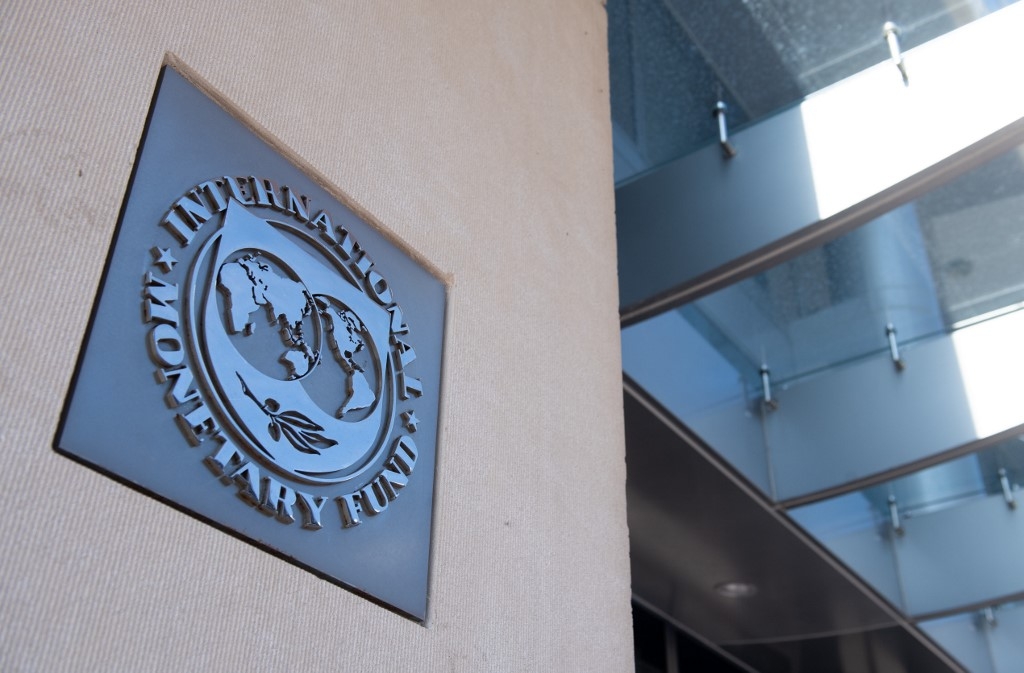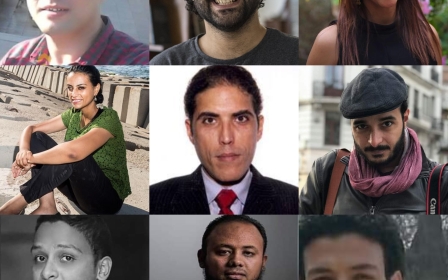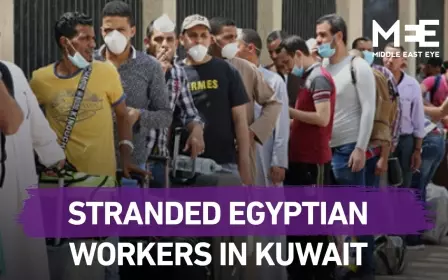Egypt ex-minister slams $2bn IMF loan as 'political decision to support Sisi'

Egypt's former investment minister has warned a $2.77bn IMF loan will deepen austerity and inflict great harm on the country's poor, as the Middle East's most populous nation struggles amid the coronavirus pandemic.
The IMF's executive board approved a $2.77bn loan to Egypt on Monday in an attempt to prevent economic collapse in the North African country.
Geoffrey Okamoto, the IMF's first deputy managing director, said the funds would help Egyptian authorities continue spending on health, social protection, and supporting the most impacted sectors and vulnerable groups, while limiting a decline in international reserves.
'The message of the IMF is clearer than ever, there's a political decision to support Sisi, regardless of his senseless ruling and his dramatic human rights record'
- Yahia Hamed, Egypt's former investment minister
However, Yehia Hamed, the country's former investment minister, lambasted the deal, saying it was simply giving "more oxygen to a crumbling regime".
Egypt's main sources of foreign currency - tourism, remittances sent home from workers abroad, and Suez Canal revenues - have all dropped sharply during the start of a global lockdown in travel and trade.
New MEE newsletter: Jerusalem Dispatch
Sign up to get the latest insights and analysis on Israel-Palestine, alongside Turkey Unpacked and other MEE newsletters
And with nearly a third of all Egyptians living below the poverty line, Hamed noted that previous loans distributed to Cairo from 2016 to 2019 resulted in 60 percent of the population suffering from poverty.
"The message of the IMF is clearer than ever, there's a political decision to support [President Abdel Fattah] el-Sisi, regardless of his senseless ruling and his dramatic human rights record," Hamed told Middle East Eye.
"This [deal] goes straight against the will of Egyptians."
'Zero checks and balances'
Egypt, which also received an IMF loan in 2016, faces a deep economic downturn as a result of the pandemic.
The country's foreign reserves have fallen from more than $45.5bn to $37bn, and the Purchasing Managers Index, a measure of the business environment, has fallen from 44.2 in March to a historic low of 29.7 in April.
Okamoto said Egyptian authorities were committed to full transparency and accountability on the spending of the loan money, and had agreed to publish information on procurement plans and carry out audits of government spending.
Still, Hamed said that previous IMF loans had done nothing but simply give "more control of the economy to the military generals".
"Zero checks and balances, a very negative impact on normal Egyptians' daily lives who have to endure more taxes, removal of subsidy without any social safety net," Hamed said.
Middle East Eye delivers independent and unrivalled coverage and analysis of the Middle East, North Africa and beyond. To learn more about republishing this content and the associated fees, please fill out this form. More about MEE can be found here.




